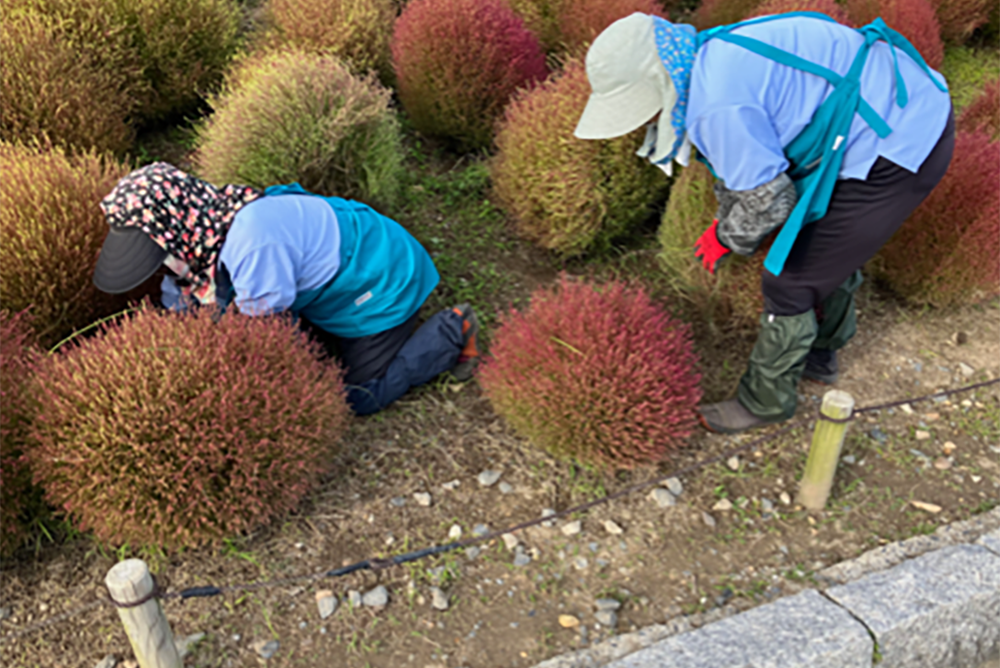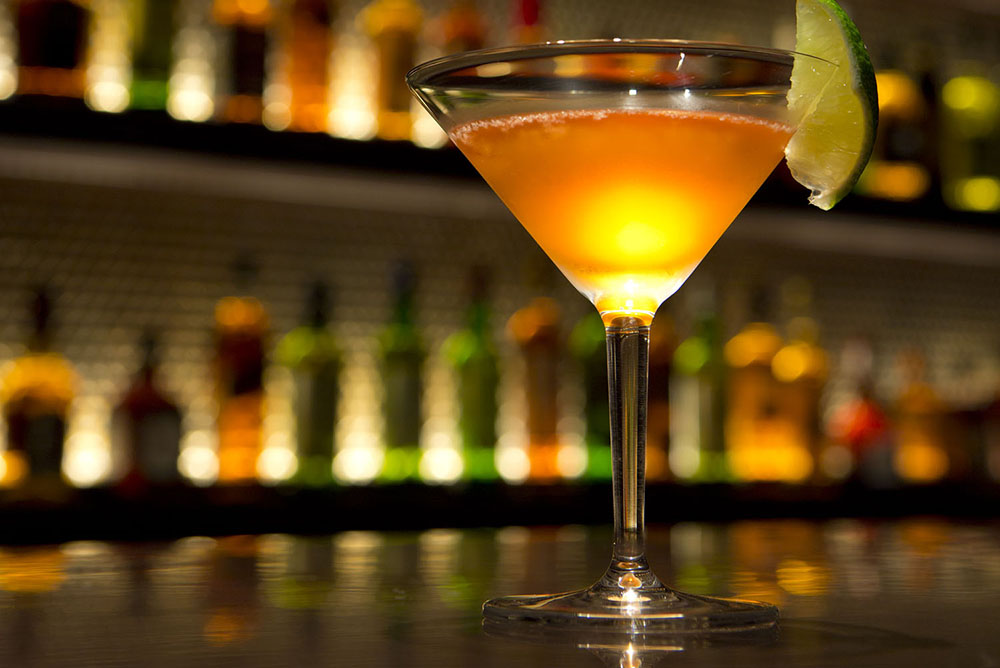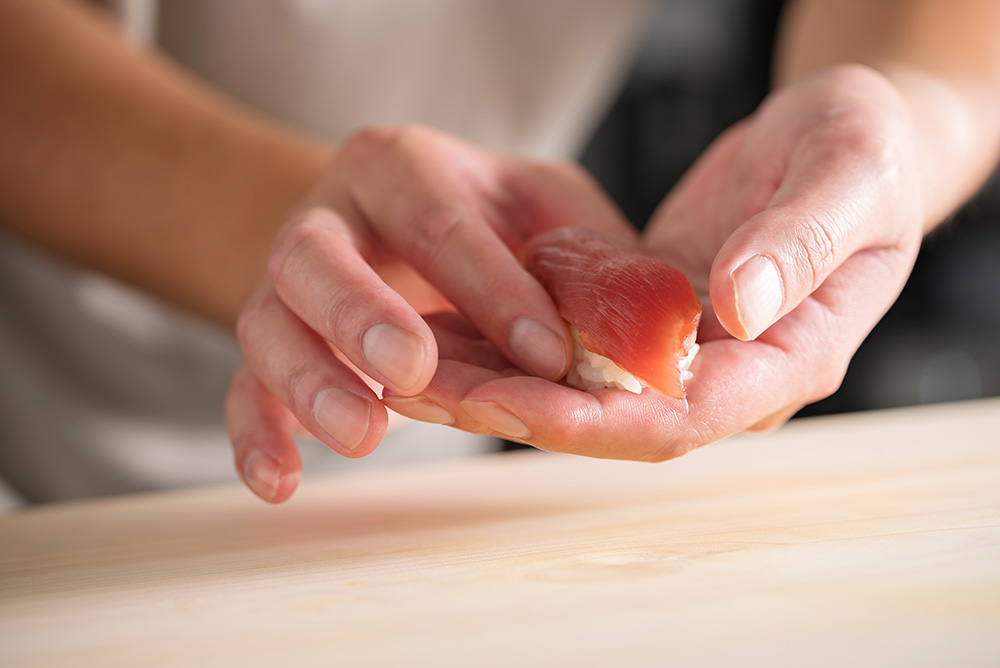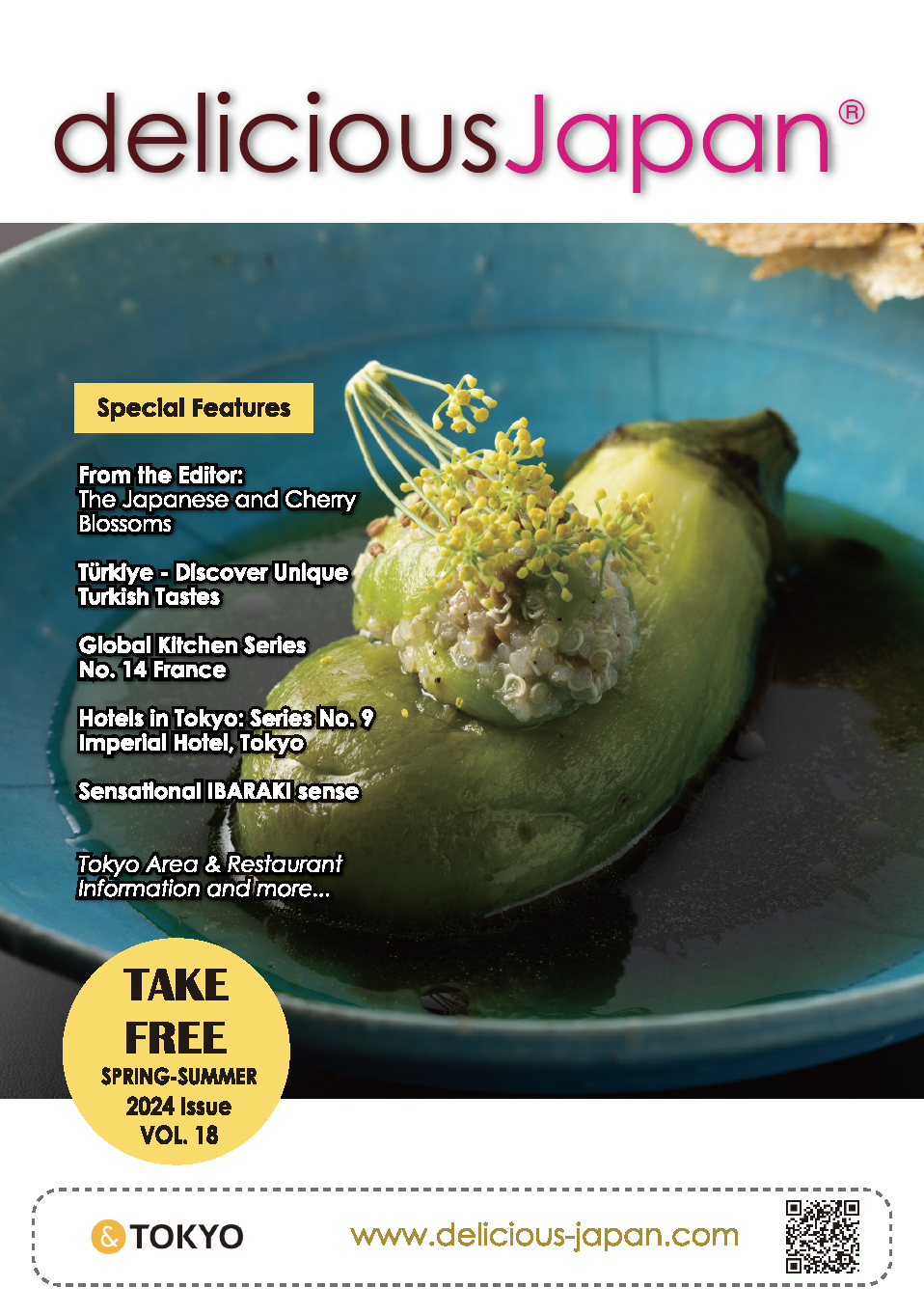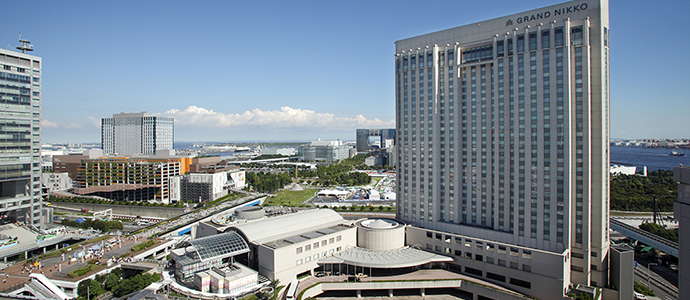
Grand Nikko Tokyo Daiba
Greeting With a Smile in Any Situation is Fundamental
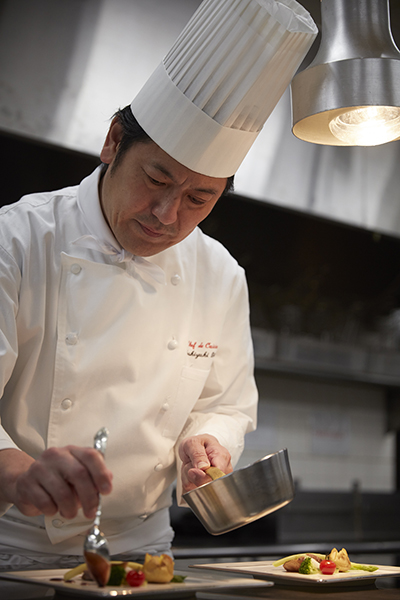
Yoshiyuki Douke
Executive Chef
Deputy Director of Food & Beverage Department
Grand Nikko Tokyo Daiba
When I was a high-school student, I had the opportunity to learn cookery at a café where I had a part-time job, and I learned the fascination of creating food. When I was 19, the chef of that café took me to eat French food, and I was struck by it. I felt the depth of French food stir up a tension within me, and I knew I wanted to enter the world of cuisine.
What is your mission as executive chef?Cooking means conveying the mood of the meal’s creators, through the food, to the diner. When the kitchen gets busy, it’s easy to focus on just getting the meal ready, forgetting to think of the diner first at all times. The executive chef acts as a “mother”, to gently unify the kitchen, so that everyone there remembers the fun of creation, creating an environment where people can address cooking with the best kind of tension. That’s the executive chef’s greatest mission. I think cooking is something that we all carry forward together, like a relay baton.
What is the appeal of Grand Nikko Tokyo Daiba?Located away from the city center, it’s a place where people can take the time to feel the relaxation created by an “island”, surrounded by a blue sea and a wide open sky.
Conversely, are the challenges for Grand Nikko Tokyo Daiba?Poor access, due to distance from the city center, and the youth of the clientele. A high proportion of the customers are young, which makes it difficult to set charges. The challenges for the future are to broaden the age range of our customers and to serve meals which will outweigh the difficulty of access from the city center.
What aspect of food hospitality do you strive for every day?To be in our best state when we address our cooking, and to permit no compromises. All of us on the creating side, the chefs and kitchen staff, strive to maintain our highest tension as we create the finest cuisine, never forgetting the joy of creation, as we convey that intensity to our guests. I think that’s the height of hospitality.
What kind of dining experience can people expect at Grand Nikko Tokyo Daiba?We want our guests to taste the fusion of the world’s ingredients with cuisine that has a new and truly Japanese sensibility, as we Japanese chefs take ingredients that come to Tokyo from around the world and serve them in the finest arrangements.
From the perspective of food diversity, what can you offer for those with vegetarian, vegan, halal, and other needs?In line with the food diversity of recent years, we are always ready to serve vegetarian and vegan menu items. As for halal, we serve dishes centered on chicken meat which has been prepared with the proper prayers, and which use no pork or alcohol.
How do you go about sourcing ingredients and developing menus for that food?For vegetarian and vegan food, I apply the experience and knowledge I’ve gained so far, and think how to make the food more delicious. Every day, I’m working through various techniques and cycles of trial and error with various ingredients to create dishes. For halal, I taste test halal-certified ingredients at various trade shows, so that I can develop our menu from carefully selected ingredients. When developing the menu, I strive to consider the balance of a diverse range of ingredients, not just plugging halal into French food.
Tell us about your vision for the future of the restaurants at Grand Nikko Tokyo Daiba.Our greatest vision is to create classic signature dishes, so that when people think of Grand Nikko Tokyo Daiba, they think of food. We also plan to make the most of the unique location of Grand Nikko Tokyo Daiba and its spacious dining hall for dynamic banquets and culinary creation.
What does “true omotenashi” mean to you, as executive chef?For me, omotenashi means putting my heart into my cooking. True omotenashi means all of us, the cooks, the service staff, hotel staff, and the marketing and sales people, coming together to get a clear understanding of what our guests want before we serve the food. I think that’s true omotenashi.
Job of the Concierge is to Guide Guests as They Create Happy Memories
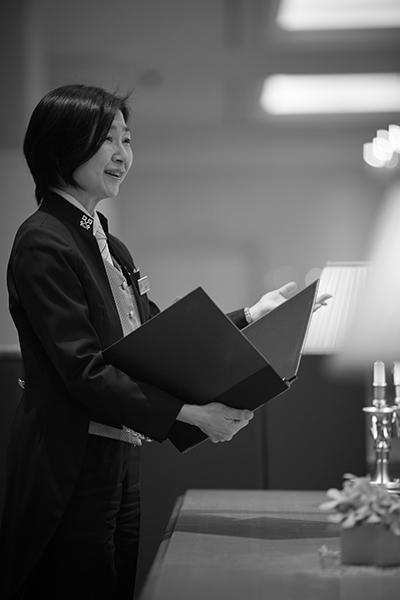
Ikuyo Takeuchi
Senior Manager
Front Guest Office
Concierge
Member of Les Clefs d’Or
Grand Nikko Tokyo Daiba
My recommendation is to enjoy your meal at the restaurant on the top floor, which commands a panoramic view of Tokyo, together with the “Tokyo Graduation” experience. That’s a two-hour period from dusk, when the pink sky spreads out, until the sparkling lights throughout Tokyo emerge as night scenery.
What is there that is different from any other Hotel?Our biggest difference from other hotels is that we’re a little way away from the city center, so we can serve as an urban resort, creating an “island” surrounded by blue sea and broad sky in all directions. Guests can experience new aspects and moods of Tokyo in our “Another Dimension, Another Tokyo”.
What is the biggest attraction of Grand Nikko Tokyo Daiba?The interior decor, centered on pale blue and green to match the wavelengths of nature, and the room color schemes, which have variations between floors, give guests new surprises and discoveries, no matter how many times they come back.
What are the most important things for you as a concierge?To value the time that creates precious memories for guests, and to address every individual among the many people who come here.
What differences are there in the ways you interact with Japanese and foreign guests?Regardless of whether a guest is Japanese or foreign, the fundamental thing is to get closer to what they customer wants, and help them to get it.
Guests from overseas have their own clear ideas of where they want to go and what they want to eat. In that case, I make careful checks to ensure that there are no gaps between us and the guest, coming from differences in awareness, common knowledge, preconceptions, and so on.
Questions about tourism, food, and shopping are common. Those from Europe often ask about touring facilities and experiencing Japanese culture, while those from Asia more commonly ask about shopping for things like snacks and household items. It’s increasingly common that people want me to look for food or scenery from photos they found on Instagram.
What has moved you in your work as a concierge?gourds, and I introduced them to a farmer in Shiga Prefecture. The farmers’ son had occasionally participated in gourd craft conventions in the USA. The two, with their shared hobby of gourd crafts, met by chance, and I was happy to hear that they kept in touch. When new encounters happen in places I don’t know about, and people make chance connections, that’s the thing that makes me happiest as a concierge.
Why did you choose to become a concierge?Before, when I was providing information on a front desk, I met a French concierge. She said “Offer what will be right for the individual, not just what there is”, and that was the moment when she taught me about the role of the concierge, completely transforming the way I had been offering information until then.
What does “concierge” mean to you? And what is true hospitality?For me, being a concierge means making guests happy by guiding them naturally in a good direction, based on my experience, while conforming to what they ask for, so they can create better memories.

